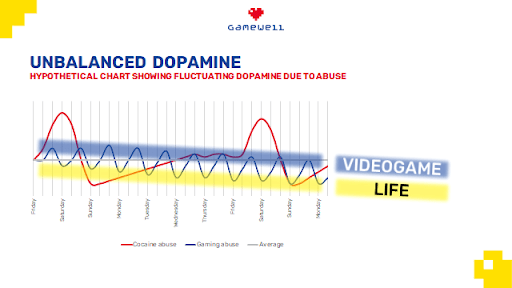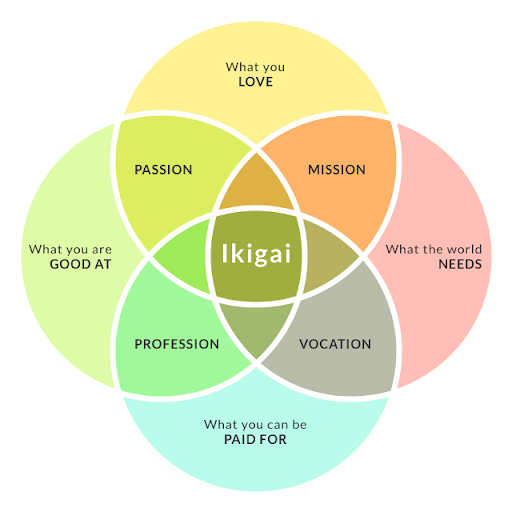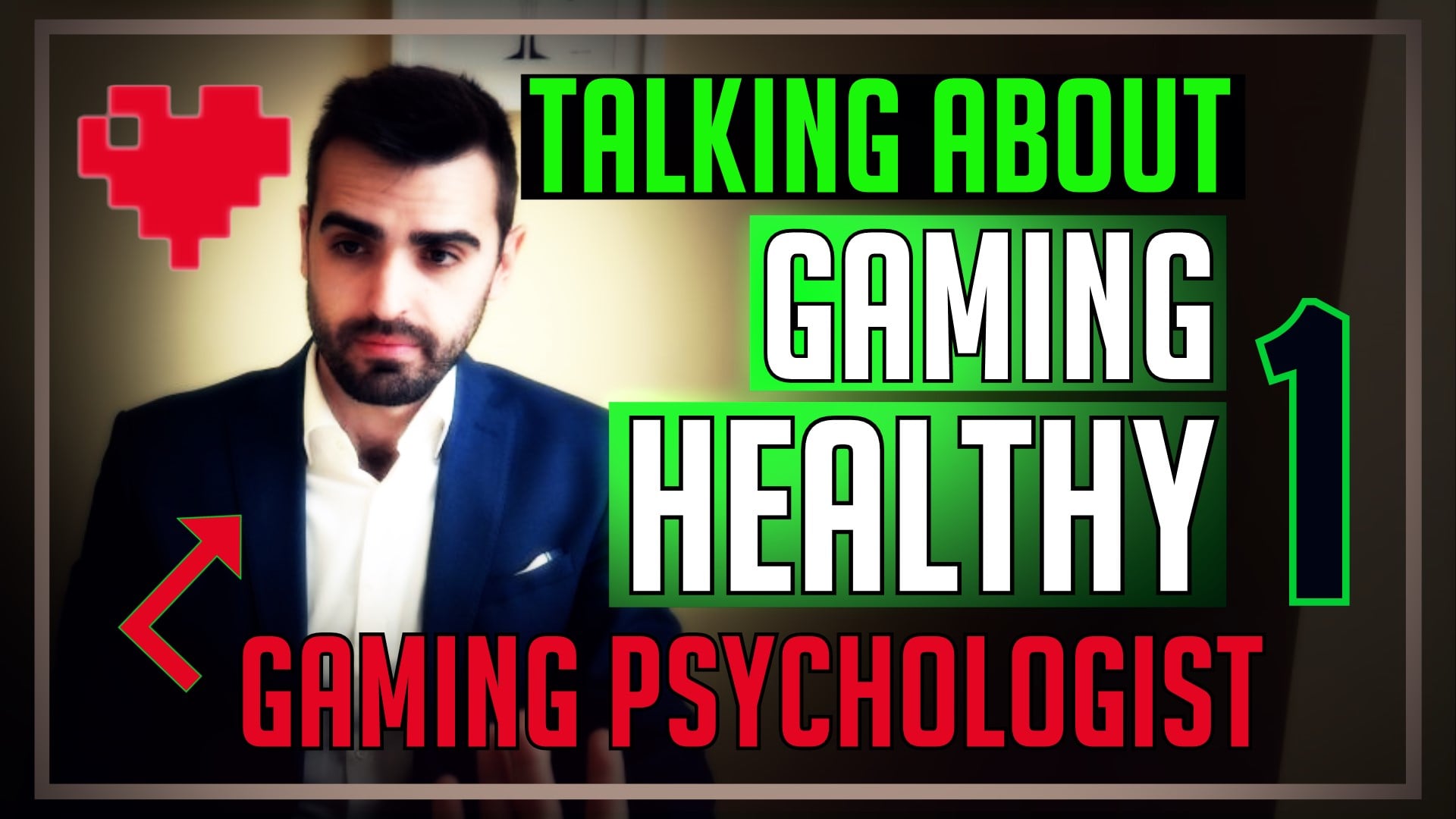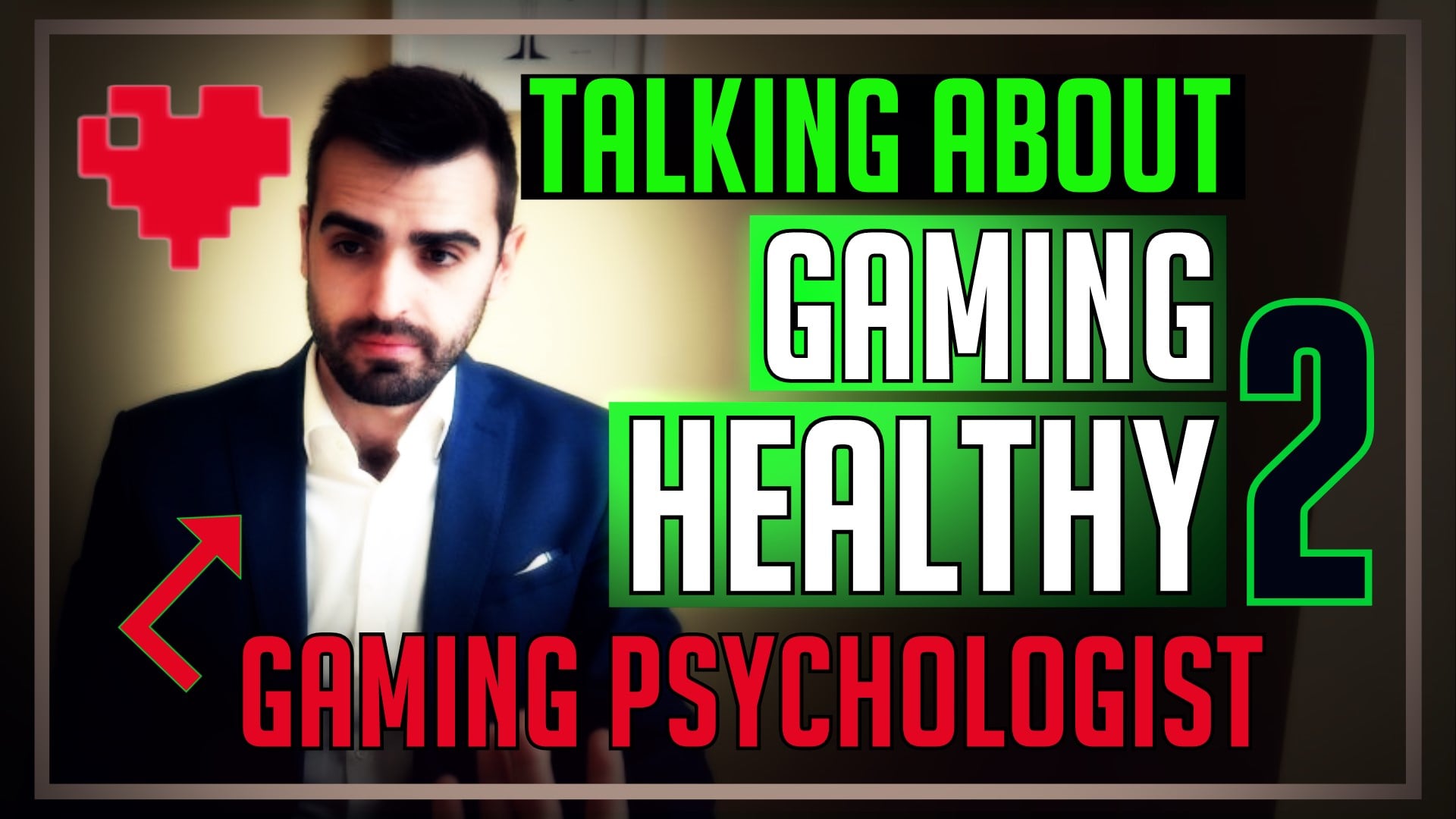8 Things to know to mix life and gaming
Since April, we have started a series of articles published in collaboration with Álvaro Fernández Cencerrado, aka ‘Jugandomejor’, a clinical psychologist from gamewell.co. During April, we developed how the brain was working when playing video games, unbalanced dopamine side-effects, and the great impacts of having few short breaks during a long gaming session. In May, Sbkzor Interviewed Jugandomejor on the ways to improve gaming performances such as avoiding gaming before sleeping, how physical exercise matters, gaming time hygiene and more.
In today’s article, Jugandomejor closes this series by giving clues and reliable signals to be able to handle life and gaming successfully.
Gaming motivation is genuine and authentic
According to one of the most popular motivation theories in psychology, we are driven by the need for autonomy, doing things because we like to do them on our own, the need for competence, feeling that we are capable and able to do things, and the need for relatedness, to interact with others. Video games fulfill them all: it’s not a casualty that the category “Just Chatting” in Twitch is one of the most-watched always. Even to this, you may add the social component of almost every video game. Social gaming motivation, as well as video games themselves, are a double-edged sword that can boost your life well-being or just boost your gaming life while reducing your own life well-being. Don’t think in terms of black and white, we all have gone through cycles across our life in the relationship with gaming and we know when we are self-deceiving ourselves and when we’re not.
Dopamine, again
The following is the most important graph in the whole psychology applied to video games extracted from Gamewell Professionals Program:

If we maintain a gaming excess, what we will see is the snowball effect. Meanwhile, my high dopamine levels will be associated with the video game, my low dopamine levels will be associated with life: life doesn’t fulfill me, I play more to relieve that emptiness, gaming is one of the few things that “give me” something.
Talking fairly, the dopamine stimulation from video games is only going to be surpassed by true self-realization in life and love, things that require personal work, some time, effort investment, and some luck. At this point, you may think they are not worth being pursued, you may be right, they are mathematically not worth being pursued. Nonetheless, if video games are the last thing that motivates you, you can do many things to live out of your passion that, with time, you will feel more rewarded and slowly push the big snowball.
First steps in pushing the snowball from the bottom of the mountain
Maybe you don’t get to be a professional gamer or neither a content creator, but potentially you’ll be a top video editor, graphic designer, community manager, marketing specialist, even psychologist like me. Something that motivated me when I was in a period of emptiness was the evitation of having the same feeling each day: I loved gaming, but the way I was playing was not fun, was to escape from reality and didn’t make any sense, but how could I deal with a reality I didn’t want to?
From my own experience, there’s no magical solution: I’ve never stopped doing things, moving to different places, trying new experiences. Even they don’t fulfill me or wasn’t the clutch thing I needed in my life, they gave me life experiences and, regarding gaming, it made my days different and not monotone, so by splitting that tiny bit the gaming time, I boosted my satisfaction greatly with gaming itself, even still I was in a bad period of life. Did many content creation (involving interviewing and knowing many people), traveled, got to theater improvisation classes, found some part-time jobs, played a lot of basketball…
As gamers, we have a deep and great analytical mind that tells us the chances of getting a reward by doing one thing. As I told you, only self-realization and love are going to be more rewarding than video games. So at that point, we have to let aside that mind and think of ourselves in terms of just exploring life and trying new things even if they lead to nothing. Nothing? Probably you meet new people which, as already scientifically proved, the quality of human relationships is the most important thing for happiness in life.
Summing up:
– Avoiding the feeling that gaming is empty is a good motivation where there’s no motivation at all.
– Your brilliant mind looks for experiences where it still feels brilliant. Start telling it that he may benefit from experiences where it looks inexperienced and noob. Noob experience was always the best.
– If you still don’t find some inner strength from where you can regain control of your life, you may need help.
Early life experiences have a relation with mostly all psychological problems and for sure they do with problematic gaming. How are they connected?
Obviously, the better the parental education, the effectiveness has been, the better, but we don’t live in an ideal world. Our parents also have suffered from their own life adversities so be cautious of not externalizing too many responsibilities on them. In one of my favorite articles from the scientific literature, they are so clever linking what they call “Core-Self Evaluations (CSE)” with disordered gaming scores. CSE may be forged during early life experiences based on how you perceive your own self based on the meanings and experiences gathered during these years.
We know that we have great brain plasticity till 7-8 years, so everything has deeper learning, and from there to early adulthood, it forged our personality. Here is a clear statement: if you have, or have had life problems not properly treated or expressed (like trauma, violence, abuse, bullying, suicidal ideation, etc.) these problems are prior to gaming problems.
Nonetheless, in most people, gaming problems will be a mix with not that strong life problems, having ups and lows. In adolescence, we start building personality and it has been proved that the ones that have more status in the group, have more endogenous neurotransmitters (dopamine and serotonin) than those who have a lower status. Under this umbrella, gaming gives dopamine and identity where there are low doses of them (or an early adverse childhood experience below that or just poor self-esteem).
Furthermore, our generation has lived one of the better comfort times of humanity, this leading to some things:
1) lack of resilience to fight in life,
2) demotivation to fight for an unmeaningful path (as a comfort zone has already been experienced)
3) in economical crisis countries, the uncertainty or poor economic conditions lead to more addictive gaming.
There’s not a magical solution, but there are nice guides such as the Ikigai
Ikigai, or the sensation of “a life worth to be lived” has been proved in a 2008 study to correlate with more age expectancy despite bad life habits.

Finding purpose in life is the best way to overcome the dopamine stimulation video games will always have. Also, it has its neurological correlation: serotonin is more linked to satiety and the pleasure of serenity and inner peace. It also has been proved that a dopamine receptor can absorb serotonin and vice versa. So it’s not that mad hypothesis that searching what generates naturally serotonin in our brain may regulate the unbalanced dopamine, and that mainly may be taking sunlight and finding purpose in life.
Again our analytical mind may tell us that it is not worth following our intuition in the road to achieving some angular stone that finally gives us the sense we are flowing with life. As exposed, what helped me is the motivation to avoid the feeling of emptiness while gaming (because I wanted to enjoy and I wasn’t!).
Eight conclusions
1. To do different things you will need boredom as it boosts creativity.
2. If you had life problems not properly treated and you see that you are gaming too much without knowing why and you can’t stop, you need help.
3. If you organise your time properly, you will be able to always enjoy both gaming and life and this might be the best way to even stay mentally more fresh to play better.
4. You know you are handling gaming properly when you don’t feel ashamed of talking completely truly about your gaming use.
5. Gaming problems and well-being is not a matter of black and white. Ask for help from time to time as the “empty” dopamine stimulation will always be there. We all are vulnerable to that and the best way to handle it is to recognise it.
6. Potentially your context doesn’t help in your gaming, you will have to be pedagogic with it (instead of defensively reactive) and teach your context to help you with your gaming. Obviously if we are talking about family, the confidence is going to be built in over facts and that will pay off unless severe restrictive cases.
7. By gaming more healthily, you will boost your own confidence, your context will support you more and you will game with less motivation of escaping from reality. The snowball goes positively upwards.
8. It’s f***ng possible! Potentially you think you don’t have anything to give to the world. What do you want to think from the bottom? The first step is always the most effortful. Gaming personality is needed by this world: gaming personality plays in a virtual world BUT always searches for what has life in it, not caring about whether it is virtual or “physical”. Start asking yourself about Ikigai and follow it no matter what. We need you!




